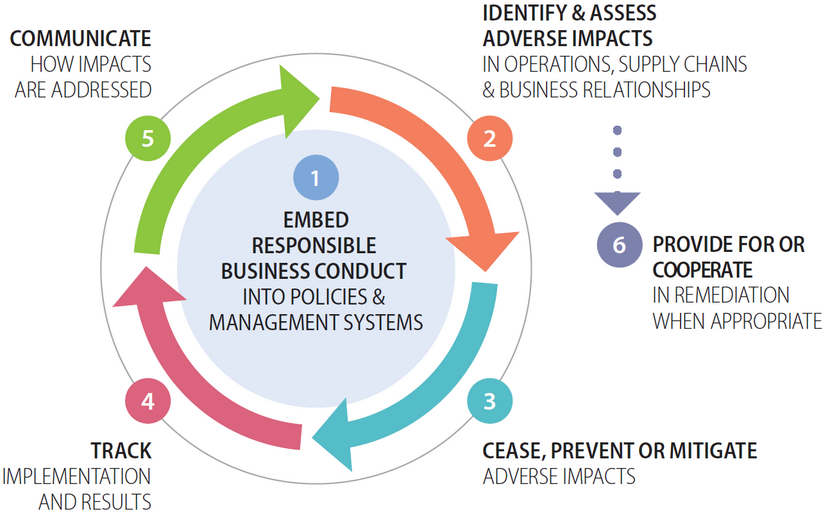
EU legislation to encourage sustainable supply chains
The Social and Economic Council of the Netherlands (SER) has advised the Dutch government on how to shape EU legislation on international Responsible Business Conduct (RBC). A European approach should focus on improving the conditions for people and the environment across supply chains. To have maximum impact on international supply chains outside the EU, the legislation should incentivise European cooperation at sector level.
The SER's advisory report “Effective EU due diligence legislation for sustainable supply chains” was requested by the Dutch Minister for Foreign Trade and Development Cooperation. The European Commission is expected to present its legislative proposal for due diligence legislation later this autumn. The SER's advisory report describes how the Dutch government should approach the proposed EU legislation.
Mariëtte Hamer, SER President: “Our advice builds on earlier SER advisory reports with regard to international RBC and further improves upon the approach of sector agreements for international RBC.” “Through international RBC, businesses can make an important contribution to sustainable development and to achieving the Sustainable Development Goals. In this next step, we are emphasising the importance of due diligence legislation at European level. Creating a level playing field, collaborative learning, joint action, and encouraging those falling behind are not a given. With this advisory report, the Dutch government can exert ambitious influence within the EU to achieve this.”
Scope
The legislation should be accurately aligned with the OECD Guidelines for Multinational Enterprises and the UN Guiding Principles on Business and Human Rights (UNGPs). The legislation should cover a broad group of companies, based on two regimes that differentiate according to size and the risk of adverse impacts:
Regime 1
For companies with more than 1,000 employees, the due diligence requirements will apply as from their introduction. In time, these requirements will extend to apply to all large companies (>250 employees) operating in EU markets. Companies can satisfy the requirements by joining EU sectoral agreements and, within that framework, carry out the due diligence steps and take part in collective action on prioritised risks.
For companies with between 1,000 and 250 employees, the legislation will be gradually phased in, on condition that the administrative burden remains workable. Until that point, these companies will be subject to the second regime.
Regime 2
For medium-sized enterprises (50 – 250 employees) in high-risk sectors, less detailed requirements will apply as from the introduction, commensurate with the scope and context of those enterprises. Companies will be exempt from these less detailed requirements if they join EU sectoral agreements and, within that framework, take part in collective action on prioritised risks.
It is important that non-EU companies operating on the EU market should also meet the same statutory requirements. It will then also be in their interest not to harm people and the environment within their supply chains.
Cooperation under sectoral agreements
The SER proposes that parties enter into sectoral agreements at EU level so as to implement the due diligence steps (see illustration) and develop
According to the SER advisory report, the European Commission should be given power to recognise sectoral agreements and other equivalent international agreements, and to support their conclusion. Once recognised, companies that have joined these agreements will be subject to lighter supervision, exercised at the collective level of the sectoral agreements. They will not, however, fall outside the scope of supervision.
The freedom of association and the right to collective bargaining are fundamental requirements for sustained improvements in working conditions. The sectoral agreements will therefore promote these rights across all sectors.
Responsible and supportive government
The SER believes that the European Commission and member states should lead by example when promoting international RBC, for example through socially responsible procurement. In order to introduce legislation that will make a difference across international supply chains, appropriate supervision and enforcement, sufficient human resources, and additional financial resources will be needed from governments as well as businesses. Supervision should preferably be organised at a European level so as to ensure the same outcomes in all member states.

